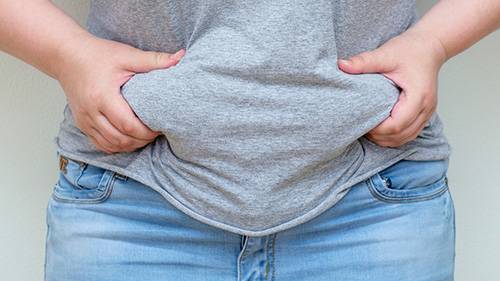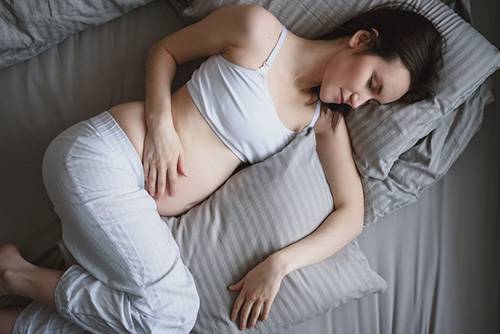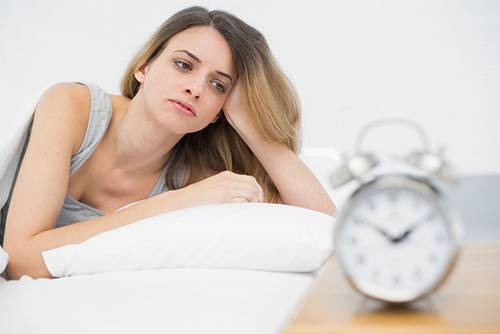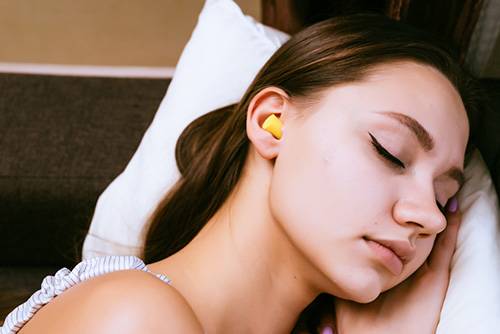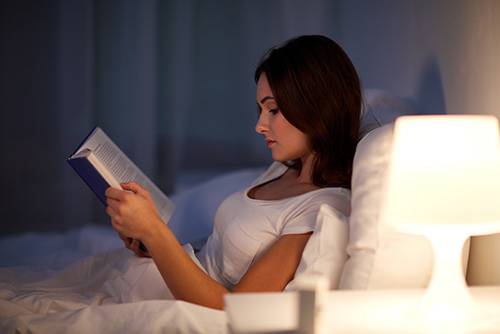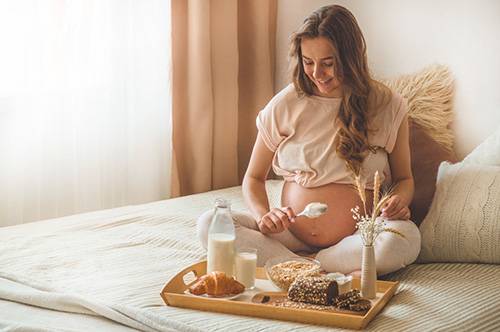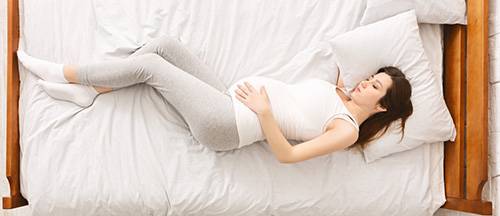
One thing that’s often overlooked when planning for a baby is sleep. (And no, I don’t mean the roughly 0 hours of sleep you’ll get once he or she is born.)
Did you know that the amount of sleep you and your partner get each night can impact your ability to conceive? Because the sleep factor plays such a large role in your success here, we’ve decided to dedicate an entire article to the topic.
Here, you’ll learn…
- …how much sleep the average person needs vs. how much a pregnant woman does.
- …how exactly lack of sleep can impact your ability to conceive.
- …some of the best ways to ensure you get a better night’s sleep.
Let’s get to it.
How much sleep does the average person need?
The average adult (aged 18-65 years old) requires anywhere from 7 to 9 hours of sleep each night. These numbers increase when talking about teens, children, toddlers, and babies, respectively. They decrease slightly when talking about those 65+ years of age.
Sleep is crucial to many mental and biological functions in humans. For example, sleep…
- …aids in the process of long-term memory retention.
- …helps the brain clear out toxins that build up during the day.
- …allows our body to repair itself and reenergize.
In order to reap these benefits, one must get adequate sleep each night.
It’s important to keep in mind that each person is different, and no two people will have the exact same sleep needs—or life circumstances! As a rule of thumb, you shouldn’t worry too much about how much sleep you’re getting. As long as you wake up in the morning feeling good and ready to show the world your gorgeous face, you should be fine.
How much sleep does a pregnant woman need?
Pregnant women require about the same amount of sleep as the average (read: non-pregnant) adult—7 to 9 hours. That said, pregnant women also tend to have a more difficult time falling and staying asleep than said average adult.
To compensate for sleeping difficulties at night, many pregnant women take short naps during the day. Experts have noted that pregnant women may also feel the need to get extra sleep in general (a natural side-effect of nourishing and carrying around a constantly growing fetus, I’m sure).
In short:
If you’re already sleeping roughly 8 hours a night, good for you! Keep up the good work.
If you’re not getting enough sleep, you (and your future fetus) will greatly benefit from adding a couple hours to your normal sleep schedule. We’ll talk more about this in a bit.
Does lack of sleep affect fertility?
Yes, lack of sleep is thought to play a role in fertility-related issues. There are a few key points to consider here:
— Hormones
Hormones are responsible for a lot of what goes on in our bodies, including—you guessed it—reproduction. Getting enough sleep each night allows our brains to release the appropriate amounts of different hormones throughout the day; neglecting to get adequate sleep, on the other hand, can cause hormonal imbalances. Interestingly, the part of our brain (called the thalamus, in case you’re wondering) that regulates our reproductive hormones also regulates the hormones involved in our “sleep-wake cycle” (a.k.a. the circadian rhythm).
In women, key reproduction hormones include estrogen and the follicle-stimulating hormone (FSH). While the former works to maintain overall bodily health and keep the female reproductive system in fine working condition, the latter is directly involved in the release of eggs from the ovaries. Women who don’t get adequate sleep often experience imbalances in the release of these hormones, resulting in:
- Irregular menstruation cycles
- An inability to conceive or carry a child to term
In men, the key reproduction hormone is testosterone. This hormone is responsible for a range of things, from normal male development to libido. Men who do not get adequate sleep will—just as women do—experience imbalances in this and other hormones. This can result in decreased libido, a lack of matured sperm, or an inability to perform sexually.
— Health Problems
In addition to causing hormonal issues, getting inadequate sleep can also result in a number of health problems. People who get very little (or too much) sleep are more likely to experience physical issues like:
- Obesity
- Heart disease
- Diabetes
Or mental/emotional issues, including:
- Anxiety
- Depression
- General mood swings
All of these health problems—and even more that I didn’t list—can easily interfere with your ability to conceive or carry to term.
— Inflammation
As if you needed another reason to try getting more sleep, did you know that lack of sleep in both pregnant and non-pregnant individuals has been shown to cause inflammation? This is bad for you, and it could be even worse for the baby. It can both hinder your progress toward conceiving and make it more difficult for you to carry the baby to term.
How to get more sleep
Okay, so getting enough sleep during pregnancy is hard—especially if you’ve already had a history of poor sleeping patterns or insomnia. The good news is that there are a few things you can do to improve your chances of falling asleep, staying asleep, and getting better-quality sleep.
- Make sure your room is dark.
- Lower the temperature before snuggling up in bed.
- Set a regular bedtime (and waking time) for yourself.
- Do a relaxing activity or mindfulness exercise before trying to sleep.
- Avoid caffeine and alcohol for several hours beforehand.
- Try to avoid using your phone, tablet, or computer before settling down for the night.
- Get some sun and exercise.
Tips for falling asleep faster
I know, I know. Sometimes no matter how many small life changes we make, our efforts come up futile and we end up lying awake in bed for…like all night. If none of the more general tips above help, you can refer to these brief words of advice on how to fall asleep faster when all else fails.
Do not watch the clock
If you find yourself frequently rolling over to check your alarm clock or cell phone for the time, stop. This habit will make you feel more stressed and/or angry about how much sleep you’re getting (or not getting)—and sleeping under the influence of negative emotions is nearly impossible.
Listen to soft music (or invest in some good earplugs)
Studies have shown that listening to soothing or calming music before (or during) bedtime can help you fall asleep faster and also produce a higher quality of sleep. On the other hand, if you struggle to fall asleep with music or live in a noisy environment, you might prefer to invest in some really good earplugs to block out the noise.
Give aromatherapy a try
Aromatherapy is the method of using essential oils from plants and plant products to soothe a variety of ailments: anxiety, depression, discomfort from chemotherapy, you name it. Given the tranquil properties of essential oils, it should come as no surprise that aromatherapy has also been shown to induce higher-quality sleep.
Get some reading or writing done
Reading can be a relaxing activity to do before bed, allowing your mind to wander away from your most pressing thoughts and toward something more positive or fascinating. In addition, reading can help make you sleepy if you aren’t already. And this is true whether you’re into fantasy novels, mysteries, tales of romance, or even nonfiction books on cool stuff like medicinal plants or astrophysics.
Do what mothers have been doing for centuries and pull a reverse-psychology trick
Remember that time you wanted to spend your allowance on a toy from the checkout counter? And your mom was like: “Yeah, that’s fine. Enjoy being a kid while you can.” And you were like: What?! I’m not a kid. I’m responsible. I’ll save this cash for that new bike I wanted instead.
Did you know the same trick can be used to help you fall asleep faster at night? Instead of telling yourself to fall asleep (which will stress you out more), tell yourself the opposite: “Okay, yeah. You can stay up all night and get work done if you really want to. That’s a good idea.”
Trust me, you’ll fall asleep like that.
Watch your diet
If it sounds like everything these days boils down to diet and exercise…there might be a reason. Your diet and eating habits can impact how much and how well you sleep at night. Studies have found two interesting connections:
- Eating simple carbs roughly 4 hours before bed promotes better sleep.
- Following a high-fat/low-carb diet in general can help you sleep better.
In addition, you might want to try consuming some of the following foods and beverages before bed to increase your chances of a good night’s sleep:
- Almonds and walnuts
- Kiwis and bananas
- White rice
- Oatmeal
- Plain yogurt
- Milk
- Chamomile tea
Try the Military Method
The Military Method basically involves relaxing your entire body—starting with your face and working down to your legs—and then clearing your mind before thinking about a calming scene. This method is said to put you to sleep in under two minutes!
There are also other useful methods you might want to research and try for yourself. These include the 4-7-8 Method and Progressive Muscle Relaxation (PMR).
Conclusion
Alright, parent-to-be. You now know the importance of sleep, in terms of conception and pregnancy, and you have a wealth of tips, tricks, and methods for falling and staying asleep at night.
As you plan your upcoming life of parenthood, it’s normal—nay, it is essential—to have questions and concerns. If you would like to learn more about the topics we covered here today or have a question about something, let us know in the comments and we’ll be glad to help you out.
Until next time, try to get some nice shuteye and best wishes for your future family.
Photo credit: Flotsam/Shutterstock; Maksim Shmeljov/Shutterstock;
Prostock-studio/Shutterstock; Lifeking/Shutterstock; fizkes/Shutterstock;
Ruslan Galiullin/Shutterstock; Dragana Gordic/Shutterstock;
lightwavemedia/Shutterstock; nelen/Shutterstock; Syda Productionsnelen/Shutterstock;
Anton Mukhin/Shutterstock; Nastyaofly/Shutterstock; Prostock-studio/Shutterstock



